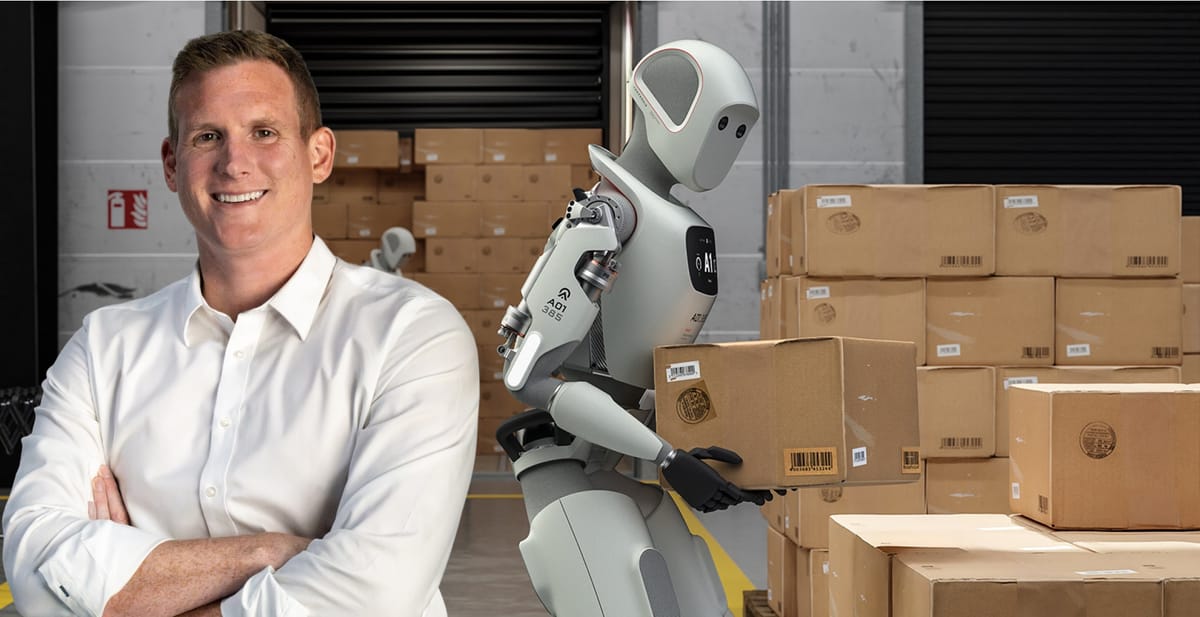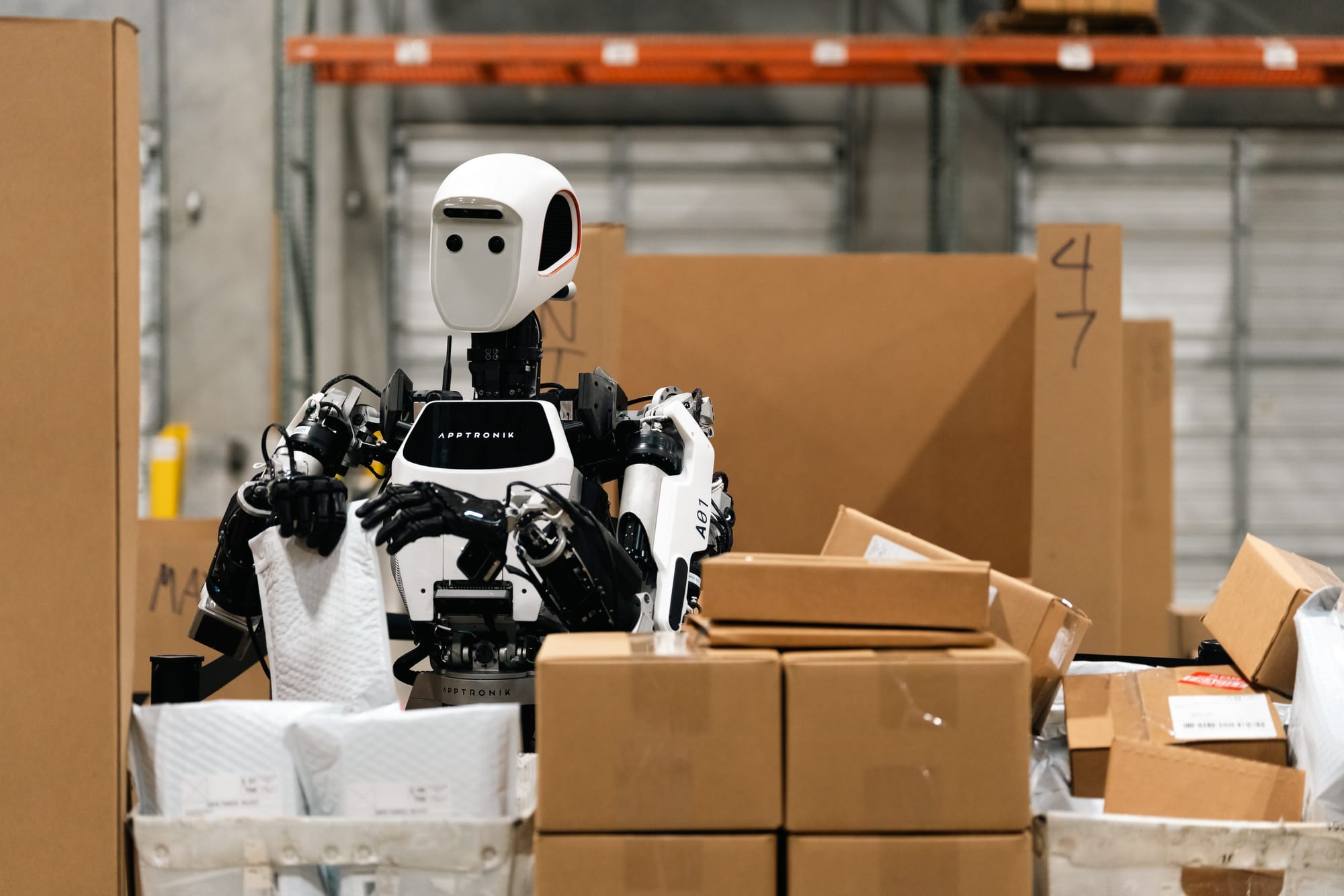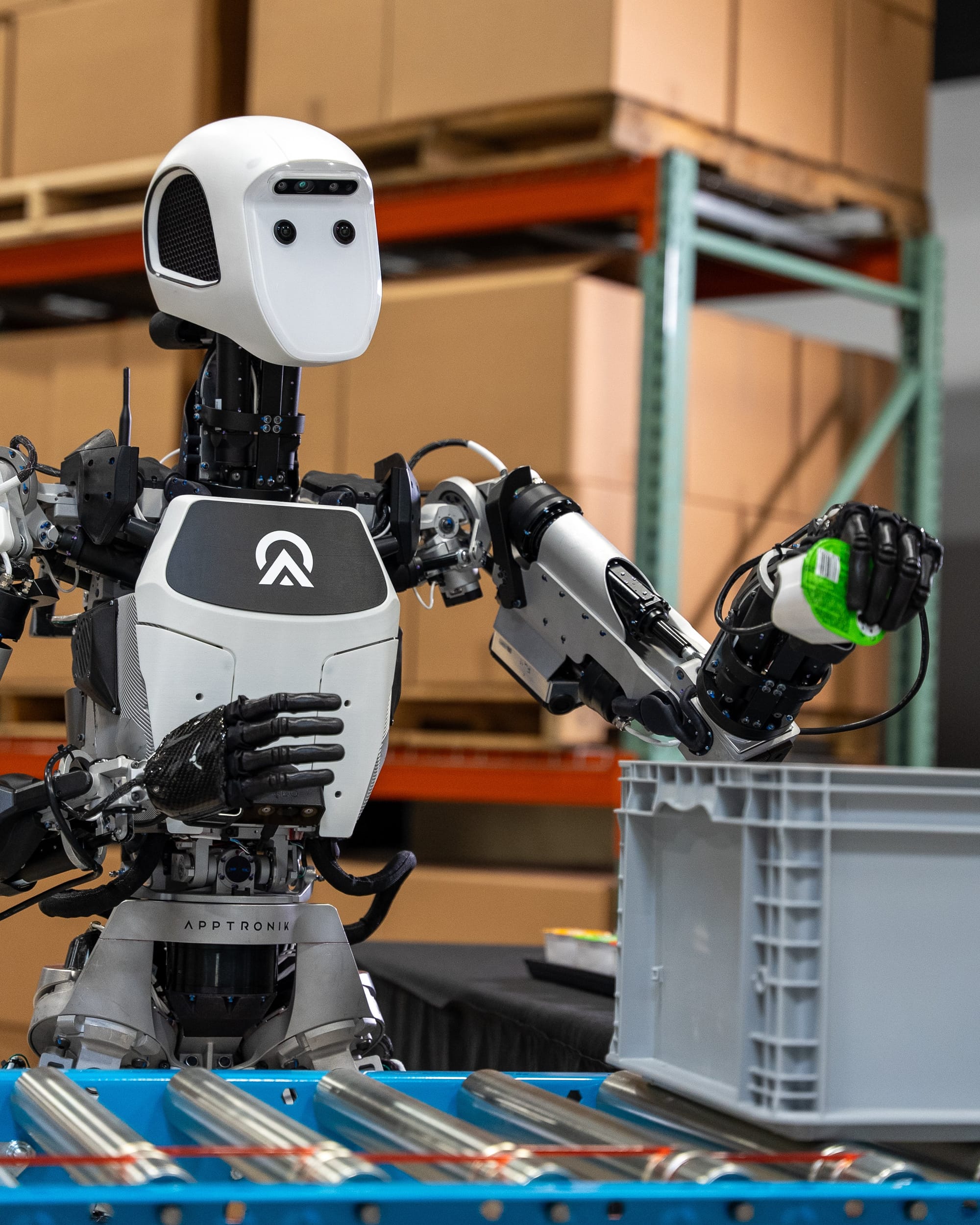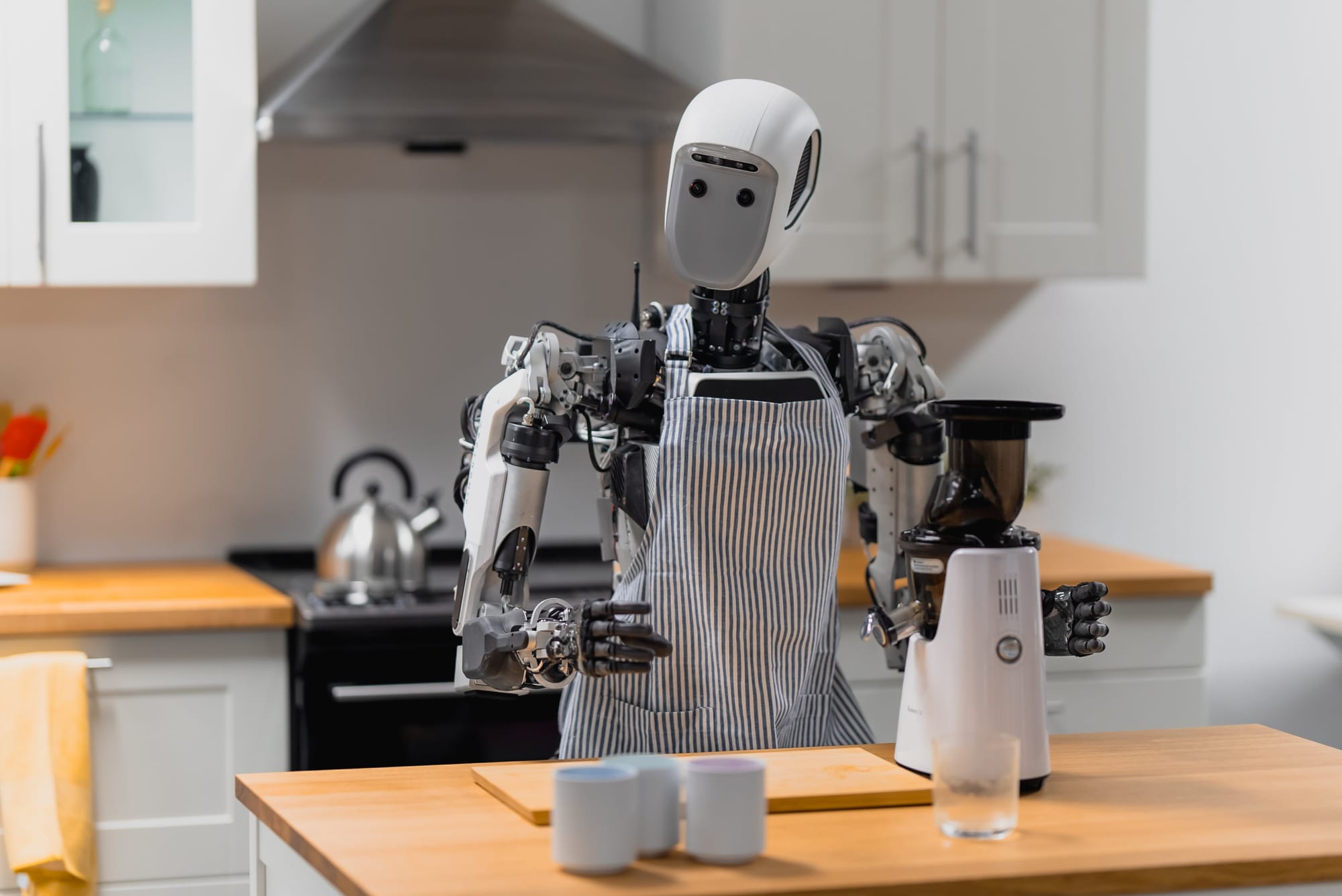
Humanoid robots are inching closer to the workplace. Apptronik, a Texas-based robotics company, has secured a massive $350 million Series A funding round to scale the production of its humanoid robot, Apollo. The round was co-led by B Capital and Capital Factory, with Google also participating—an endorsement that signals growing confidence in the commercial viability of humanlike robots in logistics and manufacturing.
Key Points:
- The funding will accelerate the development and deployment of Apollo, Apptronik’s AI-powered humanoid robot.
- Apollo is designed for industrial applications like logistics and manufacturing, with potential future use in healthcare and home settings.
- The company has partnerships with NASA, NVIDIA, Mercedes-Benz, and GXO Logistics.
The race to bring humanoid robots into the workforce is heating up, and Apptronik just secured a major boost. The Austin-based robotics company has raised $350 million in Series A funding to ramp up the production and deployment of its humanoid robot, Apollo. The round was co-led by B Capital and Capital Factory, with participation from Google, strengthening an existing partnership between Apptronik and Google DeepMind.
Apollo is built for industrial tasks, with initial deployments targeting logistics and manufacturing. The robot is expected to assist with tasks such as warehouse operations, automotive assembly, and supply chain fulfillment. Jeff Cardenas, CEO and co-founder of Apptronik, says the funding marks a critical inflection point for the company. “Now we’re getting these robots out into the world in a pretty big way and scaling them up,” Cardenas said in an interview with CNBC.
The funding round is a significant milestone, given Apptronik had previously raised just $28 million since its founding in 2016. The company has developed 15 robotic systems, including contributions to NASA’s Valkyrie robot, and has strategic collaborations with NVIDIA and Google DeepMind to enhance Apollo’s capabilities.



Competition in humanoid robotics is growing, with companies like Tesla, Figure AI, and Agility Robotics also securing large investments. According to Goldman Sachs, the humanoid robotics market could be worth $38 billion by 2035. Cardenas believes Apollo’s affordability—targeted at a price point below that of a car—will be key to adoption. “These robots are going to get much more affordable over time,” he said.
While logistics and manufacturing are the immediate focus, Apptronik envisions a broader future for humanoid robots. Potential applications in elder care, healthcare, and household assistance are on the company’s roadmap. “The world is built around humans, so we believe that humanoid is the form factor that helps robots reach scale,” Cardenas said.
With fresh capital and backing from key investors, Apptronik is positioning itself as a major player in the rapidly evolving humanoid robotics sector. The company plans to spend much of 2025 testing Apollo in real-world industrial applications, moving closer to the day when humanoid robots become a routine part of the workforce.

